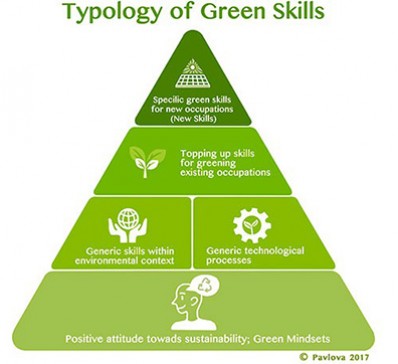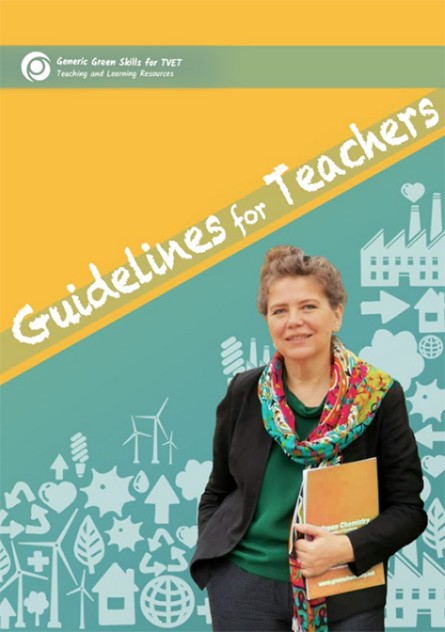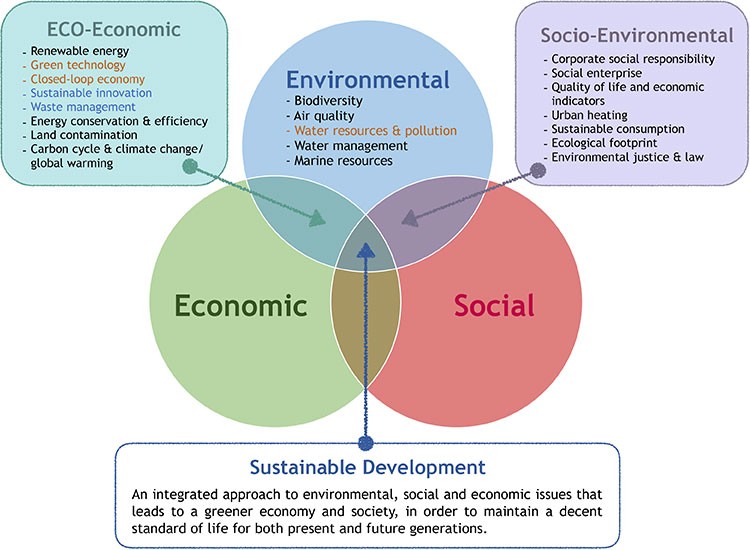Green skills are those skills needed to reduce environmental impacts and support economic restructuring with the purpose of attaining cleaner, more climate resilient and efficient economies that preserve environmental sustainability and provide decent work conditions.
They can be classified as generic (or 'key' or 'core') competencies and specific (task-oriented) competencies that are required for particular occupations. Both types of competencies are used within specific contexts and require knowledge, skills and attitudes (or beliefs, dispositions and values).
Read More

Guidelines for teachers bring together essential information about the resources. Teachers are advised to read them before they start using the resources to gain a better understanding of student-centered learning that is an essential element of planning lessons based on the resources. The guidelines provide background information and theoretical framework about greening the TVET curriculum, and they also describe the teaching methods adopted by these resources as well as assessment methods.
In addition to the general guidelines, each teaching pack includes teacher guidelines that outline learning outcomes, preparation required, time allocation, suggested teaching strategies and sequencing of activities, assessment strategies and possible answers for assessment items.
Read MoreIn 2015, countries adopted the 2030 Agenda for Sustainable Development and its 17 Sustainable Development Goals (SDGs). On 1 January 2016 SDGs officially came into force. They call for action to promote prosperity and development while simultaneously protecting the planet. They recognize that ending poverty must go hand-in-hand with strategies that build economic growth and address a range of social needs including education, health, social protection and job opportunities, while tackling climate change and environmental protection (see https://www.un.org/sustainabledevelopment/development-agenda/) Read more
Greening industries is essential for green restructuring and sustainable development. The process involves policymaking, improved industrial production processes and resource-efficient productivity (see https://www.unido.org/our-focus/cross-cutting-services/green-industry/green-industry-initiative). The minimization of raw material use, a reduction in energy and water consumption, and control over waste and emissions will result in the efficient use of natural resources and will foster cleaner production. Cleaner production accelerates the use of preventive environmental strategies involved in processes, products and services, in order to increase efficiency and reduce risks to humans and the environment (see ibid). Read more
The advance of technology and industries has resulted in the modernization of societies, but it is also responsible for a wide range of environmental problems such as climatic conditions, a loss of biodiversity and worsening human health. Issues that impact the sustainability of our planet are related to environmental, economic and social aspects. The 2030 Agenda's Sustainable Development Goals (SDGs) cover a wide range of interrelated issues, such as transitioning to low-carbon economies, increasing production and consumption in a sustainable manner, conserving biodiversity, building human resource capacity, forging strong partnerships between stakeholders and tackling regional problems collaboratively.
However, these resources are mainly focused on the environmental, eco-economic and socio-environmental aspects of sustainability. It is important to also acknowledge that economic and social dimensions are essential for achieving SDGs. Read more
Click on the Figure to learn about sustainability concepts. For the orange concepts you have an open access to resources.


The resources on this site were developed by a team led by Dr Margarita Pavlova, Director of the UNEVOC Center (Hong Kong) and funded by the President’s reserve fund at the Education University of Hong Kong (CRAC project “Creating an Impact: Setting up a Green Skills Hub at the EdUHK” - 03A68). Our dynamic and innovative team researched existing approaches towards generic green skills development in Hong Kong and the Asia-Pacific region. These findings helped us frame an effective and distinctive approach towards identifying and incorporating sustainable development concepts into teaching and learning resources that can be used by all TVET teachers, as well as TVET teacher education programs.
This website offers you a unique and creative approach for developing generic green skills within TVET programs.
Read More